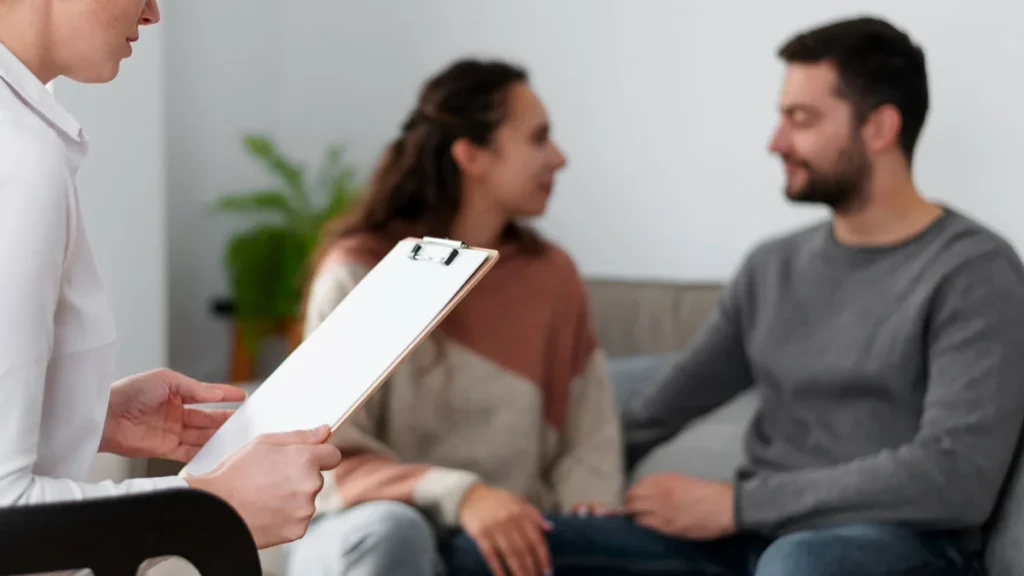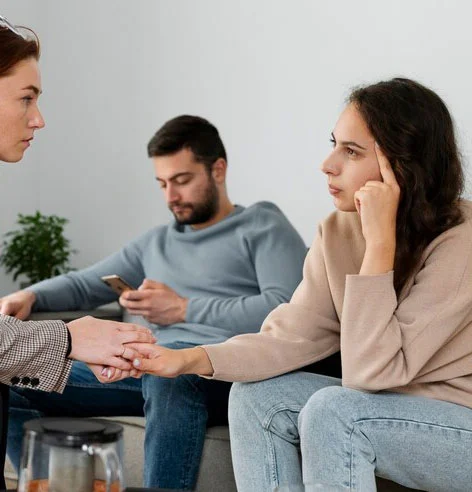
Relationship Counseling: What You Need to Know
Relationships can be really tricky sometimes, right? One minute you and your partner are perfect together, totally in love. The next minute, you’ve hit a rough patch – fighting a lot, not communicating well, and feeling disconnected from each other.
It happens even to the strongest couples out there. The spark fades, resentments build up, and you start questioning your relationship. But here’s the thing that separates couples who get through those hard times from ones who break up – getting professional help from a relationship counselor.
Don’t think of it as sitting on a therapist’s couch sharing deep secrets. Relationship counseling these days is about creating a safe space for you and your partner to reconnect. It’s about rebuilding your foundation and remembering why you fell for each other in the first place.
If you’re struggling to see eye-to-eye with your partner and could use some guidance, modern Counselling for relationship issues is all about. It may be exactly what you need to get that spark back.
Table of Contents
ToggleWhat Is Relationship Counseling?
Relationship counseling (sometimes called couples therapy) involves you and your partner sitting down with a neutral third-party professional to work through conflicts in a structured, judgment-free environment.
Counselling for relationship issues is a specialized form of therapy designed to address the unique challenges couples face. These licensed therapists don’t take sides or try forcing some idealized picture of what your relationship “should” look like. Rather, their role is to simply facilitate open and honest dialogue between partners about their concerns using proven communication techniques.
These licensed therapists don’t take sides or try forcing some idealized picture of what your relationship “should” look like. Rather, their role is to simply facilitate open and honest dialogue between partners about their concerns using proven communication techniques.
During these talk sessions, the counselor helps identify root issues fueling your problems through rational discussion. Maybe it’s trust issues, different life values, intimacy needs, or various stressors driving you both apart. Once those core disconnects are understood, the therapist then guides you through collaborative resolutions tailored to your shared goals as a couple.
In essence, good relationship counselors create opportunities for vulnerability, empathy and recommitment between two loving partners who’ve lost their way a bit. It’s about stripping away resentments and getting back to the fundamentals of what made you both click in the first place.

Who Can Benefit from Relationship Counseling?
While the obvious answer is any couple trudging through rough patches or contemplating splitting up, the benefits of relationship counseling extend far beyond just crisis mode:
- Newlyweds: Getting on the same page about expectations, roles and future goals with facilitated communication.
- Long-Term Partners: Rekindling stagnant intimacy or dealing with issues like jealousy, infidelity, or trust rebuilding.
- Parenting Conflicts: Getting aligned on differing child-rearing philosophies through healthy dialogue.
- Major Life Transitions: Coping with cross-country moves, career changes, losses, or other life disruptions.
When to Seek Relationship Counseling?
So with all those potential positives in mind, when exactly could be an opportune time for you and your partner to explore relationship counseling? Here are some common scenarios:
- You’re Newly Committed: Starting off with counseling provides a solid foundation for communicating, resolving issues, and understanding each other’s needs.
- After Major Life Changes: Having kids, moving, career shifts, etc. bring new stresses. Counseling eases transitions and realigns your “couplehood.”
- Drifting or Feeling Disconnected: If you’ve started growing apart, lacking intimacy or feeling stuck in negative cycles, counseling rebuilds closeness.
- Before Making Big Decisions: If you’re considering marriage, separation, or other serious commitments, counseling helps you get on the same page first.
- Improved Physical Intimacy: Sex lives can become dull sometimes. Counseling opens communication around desires and brings back that spark in healthy ways.
So while proactively getting help during good times is always advisable, most couples do seek it out reactively after issues or disconnects become noticeable. Neither is necessarily “correct” as long as you arrive with an open mind!
Conclusion
There’s a common myth that relationship counseling is just a desperate, last-minute delaying tactic for couples already destined to divorce or split. Sure, there are some cases where relationships have simply ended despite everyone’s best efforts.
But for the vast majority of relationships, the presenting issues actually are quite solvable through mutual commitment, vulnerability and utilizing those fresh communication frameworks taught by counselors. Even in cases of major trust violations, counseling can provide a structured setting for reconciliation when both parties want it.
Whether you choose counselling for relationship issues or work with a Psychologist in India, professional help can be invaluable. After all, relationships don’t come with instruction manuals. So do whatever has the power to make you and your partner happy..
After all, relationships don’t come with instruction manuals. So do whatever has the power to make you and your partner happy.
